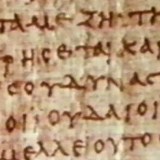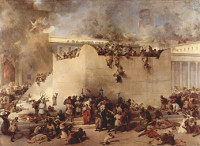Do some people get burned worse than others in hell? Some people think so.
This is the second blog entry in a row on the way that some evangelicals (fewer all the time, thankfully) insist on saying that the Bible – and the New Testament in particular – teaches that some people are going to suffer eternal torment in hell. I won’t make too much of a habit of it, but this entry was prompted by one of the comments on the previous one.
Some have said that the New Testament teaches that there will be degrees of suffering in hell throughout eternity. In the traditional vision of hell as a torture chamber of fire and sulphur, you could think of some people being roasted at 500 degrees Celsius, while others are merely blistering at 100. In more recent, milder descriptions perhaps people might think of deeper levels of remorse or mental anguish, and perhaps a century from now it will be expressed in terms of some people feeling more angsty or bummed out than others. The point is, although hell is posited as the worst possible state that a person can find themselves in, there will still be some people in hell who can correctly say “things could be worse I suppose.”
This doctrinal claim is made as a reason to reject annihilationism. After all, if the punishment for sin is ultimately death in a straight forward literal sense after the judgement, as annihilationists say, then everyone gets the same punishment. But if there are degrees of punishment in hell then not everyone gets the same punishment, so annihilationism has got to be false.





